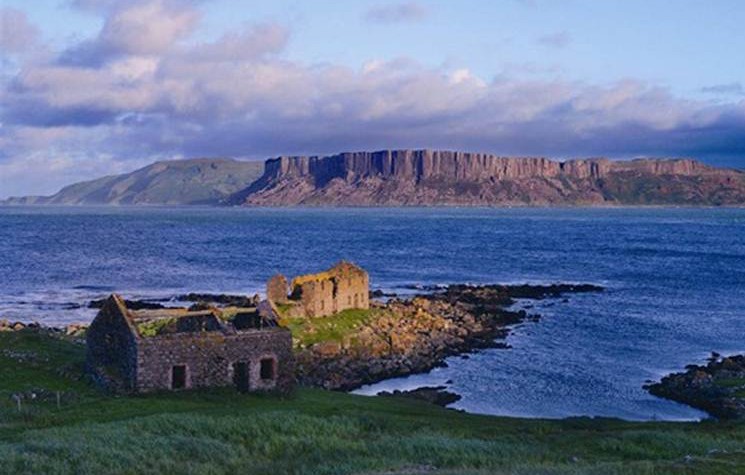Providence Resources takes encouragement from oil seeps near its Polaris prospect

By Amy McLellan
Providence Resources has released details of its Polaris oil prospect in the Rathlin Basin off the coast of Antrim in Northern Ireland. This is a very early stage exploration project but Providence has long been excited about the prospectivity of the acreage, which it holds on a 100 per cent basis.
The AIM-quoted company, which finds its shares still under pressure as investors anxiously await news of a long-awaited farm-out of its Barryroe oilfield in the Celtic Sea, the first commercial oil strike in Irish waters, has completed an assessment of satellite oil seep data acquired over P1885.
This work has revealed the presence of two large seeps some 3.5 km northwest of the Polaris prospect. These seeps appear to be related to faulting and may provide direct evidence of active oil migration from potential Lower Carboniferous source rocks.
The work has allowed Providence to make an informed decision about the relinquishment of around 70 per cent of PL1885; this is required under its licence commitments and will also help minimise ongoing costs. The company has retained what it considers to be the most prospective area over the Polaris prospect.
Providence’s technical director Dr John O’Sullivan said the presence of naturally occurring surface seeps confirmed that oil generation and migration from depth is occurring within the Rathlin Basin exploration licence area. “These seeps appear to be associated with structures within our primary Polaris prospect area,” said O’Sullivan.
In the meantime, the company is making plans for an appraisal well on the Rathlin Energy-operated Ballinlea oil discovery, which lies in the adjacent onshore exploration licence. The original well, which is interpreted by the operator to have been located close to an oil-water contact, recovered oil from Lower Carboniferous-aged sands.
The Polaris structure is interpreted to be on-trend with the Ballinlea discovery and therefore the results from this appraisal well will be important in relation to future drilling activities in P1885.
“The future drilling activity planned for the onshore Ballinlea oil discovery should only further enhance the exploration potential of this basin in general and our offshore licence in particular,” said O’Sullivan.
Comments (0)